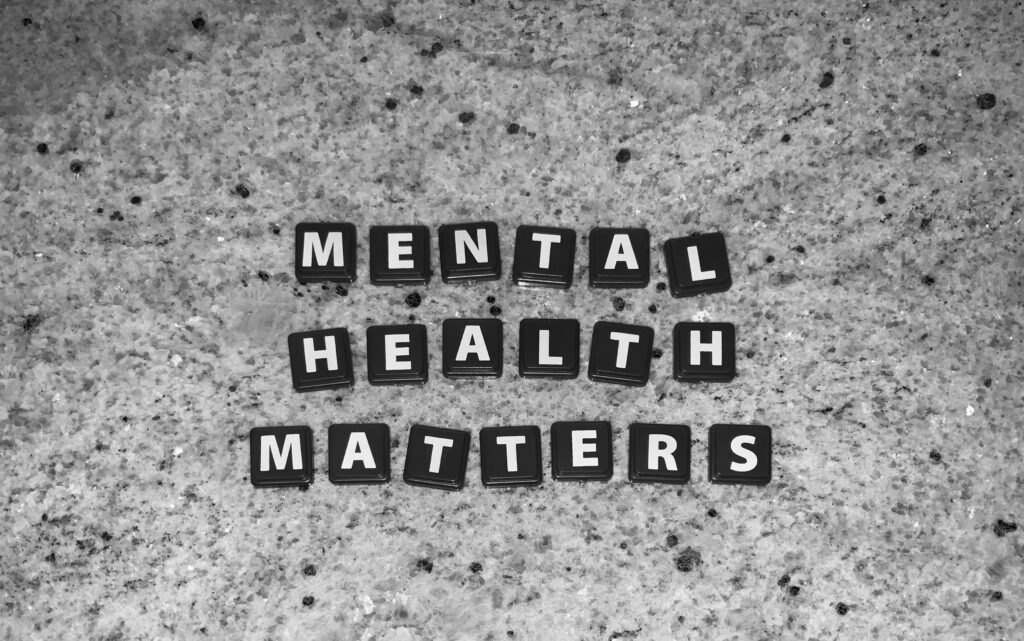In the series “The state of migrant women mental health”, we are exposing the barriers that migrant women, particularly asylum seekers and refugees face in accessing mental health services, even though statistically they are in greater need of mental health support. Rachel Jenkins, Mental Health & Wellbeing Manager at Refugee Women Connect, discusses some of the challenges that asylum seeker and refugee women face when accessing mental health services in the UK.
by Rachel Jenkins
Before discussing some of the specific barriers in-depth, it is important to highlight that these barriers exist within an intentionally ‘hostile’ climate, created by the government.
It is essential to understand that the policies that govern and control the lives of migrant women define if they feel safe enough to seek mental health services within this climate.
As a result, there are many reasons migrant women may feel unable to trust other interconnected institutions in the UK, such as statutory services. It is not the responsibility of migrant women to look past the fear and trauma of experiencing systemic racism and inequality. We as professionals providing care have to be able to understand how policies make people feel and may need to put a lot more effort into building trusting relationships with migrant communities, so they feel safe, understood, and accepted.

Understanding the specific needs of different migrant groups in a holistic, trauma-informed manner
While the UK’s most recent mental health policies and strategies now address the fact that mental health support needs to be accessible for all and that mental health is just as important as physical health, these policies do not highlight specific policies or targets for how to provide this to migrant populations, especially asylum seekers and refugees. There is a lack of training amongst mental health professionals on migrant populations and the specific barriers they may face in accessing mental health support, or why they may be hesitant to ask for support from healthcare professionals. Not understanding the basic needs or issues your clients face make it difficult to know how to provide appropriate support. If you were a counsellor, for example, who didn’t know anything about the asylum system, how would you ever be able to understand the complexity of your client’s situation or the level of anxiety your client might be experiencing in your sessions? We have to educate ourselves in order to provide appropriate care.
That also means looking at how and when our models of mental health support need to be adapted to the specific needs of migrant women. There are many changes that could be made to make mental health support more relevant and trauma-informed, that would not be too difficult to achieve. For example, having a careful look at when psychotherapeutic interventions are offered to people who are not fully settled. Asylum seekers are often moved several times during the asylum process with no control over where, when, or why they are being moved – yet they are often referred into services for trauma support immediately, either from a GP, a key worker, or staff at a support agency. While seeking treatment for trauma is an important step, it is also a step that should be done when the client is settled and does not have to worry about being moved with no notice. It can cause psychological harm to start therapy, begin to feel comfortable, disclose trauma, and then be moved to a new location, only to have to start the process all over again in a new place.
If you were a counsellor, for example, who didn’t know anything about the asylum system, how would you ever be able to understand the complexity of your client’s situation or the level of anxiety your client might be experiencing in your sessions?
The amount of sessions for psychotherapeutic interventions is also crucial. If a service normally provides six sessions of therapy, this is a very short amount of time for someone who has potentially experienced trafficking, domestic abuse, FGM, torture, or sexual assault to feel safe, establish a trusting relationship, disclose their trauma, process their trauma, and start to feel that daily life is becoming more manageable as a result. Only being offered six sessions can feel like a massive pressure to disclose trauma, and this also asks us to review ethical considerations, such as, is there truly informed consent or agency in a situation where someone is expected to disclose trauma in such a short psychotherapeutic relationship?

Language, childcare and referral pathways: some of the challenges migrant women face while accessing mental health support
Another significant barrier to accessing quality mental health support is language. People who speak little or no English may not feel comfortable or be able to call their GP to request an interpreter. Secondly, there are many issues around interpreters that healthcare services have to work around, such as a lack of interpreters in certain languages, or a lack of women interpreters in certain languages. This can mean that people requiring these languages may face being told there is not an interpreter available, may have longer waiting times, or may be told their only option is to speak to a man. Services providing mental health support should ensure they are working with quality interpreting services, and also be trained on being culturally relevant when it comes to why women may not want to speak to men interpreters, especially if they are wishing to disclose something like domestic abuse, FGM, rape, or assault.
…is there truly informed consent or agency in a situation where someone is expected to disclose trauma in such a short psychotherapeutic relationship?
Even with well-trained interpreters, there remain other challenges in regards to language. What a mental health professional in the UK callS ‘depression’ may not be understood as depression elsewhere, and terms such as PTSD or post-natal depression may not exist as psychological frameworks in the same way around the world. Mental health professionals need to ensure that the words we use when talking to people about their own mental health are words that they understand not just linguistically, but culturally as well. Some migrant women may not feel comfortable engaging in clinical counselling sessions, because the notion of sitting on a couch talking to a stranger about extremely personal issues may seem new and overwhelming – but some of those women may feel comfortable in engaging with social or wellbeing often provided through local charities, and this could still help improve their mental health.

Access to childcare is another challenge for migrant women who have been offered mental health support. If we know that the role of caregiver is still primarily carried out by women, we need to be building this into our mental health services. Imagine waiting six months for an interpreter for your counselling sessions, finally having a date set, and then turning up with your 4-month old child only to be told that you cannot bring the child into the session, and have to return home with no support. While it is understandable that it may be inappropriate for children to be in the room during counselling sessions, we have a responsibility to address the issue of providing childcare. It is not good enough to offer support if we know certain people will never be able to access this support. We need to move from a place of equality (we provide mental health support for all people who can, in theory, access it) to a place of equity (this is how we are going to ensure that the people we know are going to struggle to access this support are, in fact, able to access this support) if we want to provide quality care to migrant women.
If we know that the role of caregiver is still primarily carried out by women, we need to be building this into our mental health services.
Referral pathways for accessing mental health support are also problematic. Often, it can only be a GP or statutory agency that can refer to statutory mental health services, even though these providers may not understand the needs of their client groups. It is often the Voluntary Sector, specifically those providing support to migrants, asylum seekers, and refugees who understand the needs of their clients in relation to the barriers they are facing, the mental health issues they are experiencing, and how trauma may be manifesting physically for them. A GP who has seen the same patient for under ten minutes, three times, may not understand that the migraines and leg pain they keep coming in to talk about may actually be symptoms of PTSD, because the patient may never disclose this due to fear that the NHS can and does share personal data with the Home Office. The person who may well understand the needs of this patient, however, may well be an Outreach Worker at a local charity, yet they often do not have the power to make such referrals, even though they would be key to truly understanding how to plan appropriate mental health support around the needs of that specific person.

The invaluable contribution of “Experts with lived experience” and collective action within the mental health sector
Interventions should also be informed by the people who face the most barriers in accessing psychotherapeutic interventions. Mental health services have already started to become more informed by those living with anxiety, depression, etc. because of the benefits this can bring to the service. Similarly, mental health services should actively seek out the diverse perspectives and experiences of migrant women to help address how these barriers can be broken down and services more easily accessed. Services should be designed in consultation with experts by experience who can inform best practices for providing mental health support to migrant women.
Lastly, while the UK government seems set on furthering their draconian immigration policies, which have been condemned by several organisations that provide vital healthcare or advocacy to migrants, including Doctors of the World, British Medical Association, Maternity Action, and Freedom from Torture, more healthcare professionals and Local Authorities should come together to collectively challenge policies that are known to harm the mental and physical health of human beings. This means speaking out against the Nationality and Borders Bill, which the UNHCR (United Nations High Commissioner for Refugees) states “…is also a recipe for mental and physical ill health, social and economic marginalisation, and exploitation”.
Services should be designed in consultation with experts by experience who can inform best practices for providing mental health support to migrant women.
We have a duty as professionals providing care to ensure that all people living in our communities are able to live safely and in good health – and this means dismantling the systemic inequalities within our infrastructure that make accessing vital healthcare services impossible for so many migrant women. Will we stand together to improve the state of migrant women’s mental health, or will we watch silently as the state itself becomes increasingly the biggest barrier that migrant women’s mental health faces?




